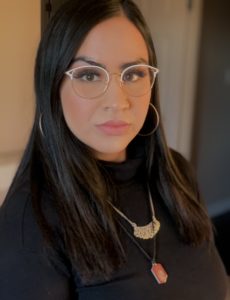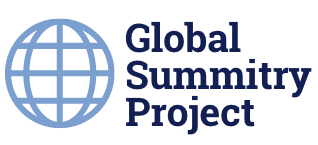
Arsheen Shamalia
Arsheen Shamaila is a poet, writer and journalist who’s passionate about social justice issues, specifically centralized around racial equality and systemic oppressions. Her specialized education in African studies and global Asian studies allows her to contextualize the current climate of society through a historical lens. Arsheen is a student in the University of Toronto Scarborough / Centennial College joint journalism program and contributed to the Global Summitry Project as part of an experiential learning opportunity in 2021.
In the world of diplomacy, former U.S. assistant secretary of state, Susan Thornton believes young voices are just as important as the wisdom seasoned diplomats bring to the table. She urges those young voices to join the conversation.
Thornton believes her approach to diplomacy not only helped her shape foreign policy but motivated her to influence those that worked alongside her on projects as important as stabilizing the U.S. relationship with Taiwan and the U.S-China Cyber Agreement.
“The thing I hope for is that all the people that I worked with and under me during the time I was in the state department can carry forward a tradition of a much stronger U.S. diplomacy than we’ve seen in the recent few years,” said Thornton, in a lengthy and wide-ranging telephone interview recently.
Thornton was born and raised in St. Paul, Minneapolis before moving to Massachusetts in middle school. She later attended Bowdoin College in Maine majoring in Russian and economics.
After a few years of teaching internationally, Thornton went to graduate school for International Relations at John Hopkins University School of Advanced International Studies in Washington for a two-year master’s program, focusing on Soviet studies. That’s when her career in diplomacy first began, in 1991.
After 28-years, mainly focused on East and Central Asia, Thornton believes the highlight of her career was the opportunity to mentor young officers who came after her.
“Mentorship in diplomacy is really important,” she said. “The thing I was most proud of actually was mentoring the team I had in the East Asia bureau.”
After retiring in 2018, Thornton started teaching at Yale Law School’s Paul Tsai China Center. Her interaction with the potential future policy makers gives her hope for the future.
“I’m pretty optimistic about the younger generation coming up and they see that this is not the world they want to inherit. They’re going to be a pretty formidable force,” Thornton said.
In such a sensitive time for foreign policy amid the remnants of the Trump administration, she believes that the future of foreign relations will be upheld by strong voices who need to be heard.
“I see these really talented and amazing young people of all kinds of diverse backgrounds coming up and being really engaged and thoughtful, creative about the world,” Thornton said.
Foreign policy and national security are male-dominated spaces where Thornton believes more women need to be included. She said that the skill sets that women naturally encompass, like building relationships and reading subtle cues, are at the core of diplomacy. A good diplomat, according to Thornton, is someone who can get to the truth.
“What I want to tell all the young women who are interested in these issues, and I know there are a lot of them, you should not shy away from anything you’re interested in,” Thornton said.
“You should be confident and speak up. We need those voices at the table. We need different perspectives.”
Navigating an intensive career in government meant moving around a lot, which was often difficult, especially for her three children. Married for 29 years, Thornton tributes a lot her success to her supportive husband.
“My husband was a teacher, and he did a lot to manage the family and the kids. I wouldn’t have been able to do what I did without that kind of support structure,” she said.
Looking back at her career, she feels satisfied by what she was able to achieve.
Thornton’s words of encouragement and hopeful attitude throughout the interview were telling of her passion to encourage young people, especially young women to come forth and shift the landscape.
Inclusion in both gender and ethnic diversity will evoke positive change in the U.S. policy sphere according to Thornton. She said there is no reason that more women can’t be in the boardroom or at the top of the national security policy structures.
Thornton believes that in a time of misinformation, we need to look outside of our perspectives to better contextualize how to help the world. She explained that we need to break down the walls between us and other policy makers in order to create solutions that favour everyone.
“We’re on this blue dot together and we need to figure out a way to coexist. It’s not always going to be ideal from your perspective. Less than ideal can be perfectly fine.”
